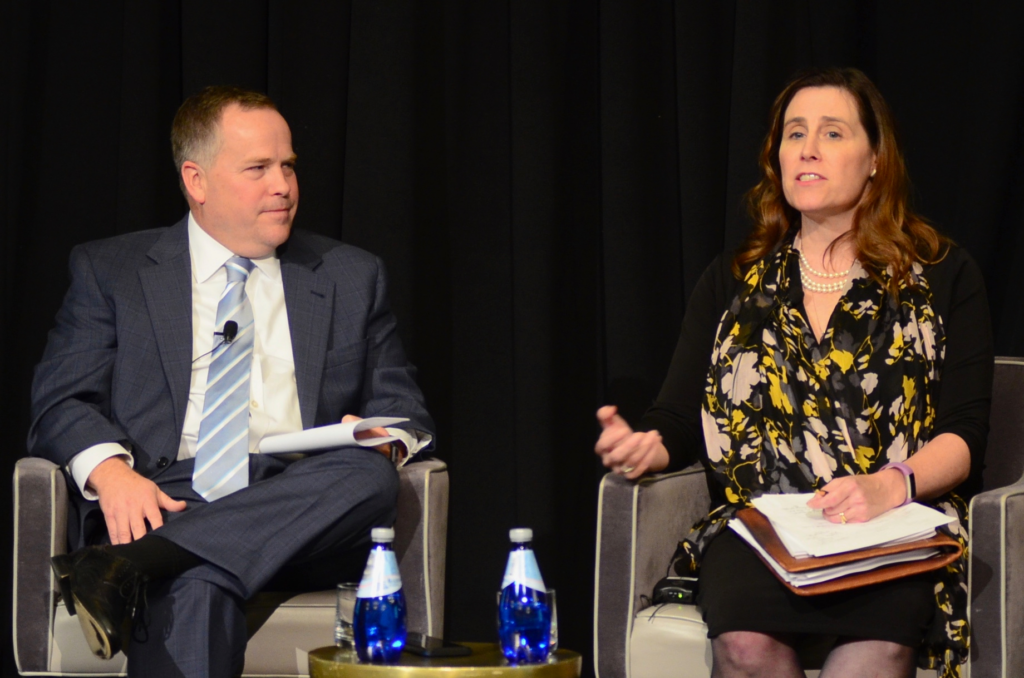Background: Hodgman’s Career and Departure
Melissa Hodgman, former Associate Director in the SEC’s Division of Enforcement, left her position in December 2024. Reports from conservative sources claim she was “pressured out” due to political bias and failure to recuse herself from SEC investigations involving Trump Media & Technology Group (TMTG).

Hodgman joined the SEC in 2008 and advanced to Acting Director of Enforcement in January 2021 under the Biden administration. She was involved in significant enforcement actions, as noted in SEC press releases. However, her connection to former FBI official Peter Strzok has fueled controversy.
Peter Strzok’s Controversial Past
Peter Strzok, Hodgman’s husband, played a key role in the FBI’s investigation into Russian interference in the 2016 election. He was dismissed from Robert Mueller’s special counsel team in 2017 after anti-Trump texts between him and FBI lawyer Lisa Page were revealed. Strzok was fired from the FBI in 2018, but in 2024, he won a $1.2 million settlement over privacy violations related to the release of his texts.
Conservatives argue Strzok’s involvement in Trump-related investigations showed bias. This perception has led to scrutiny of Hodgman’s actions at the SEC.
Allegations of Political Bias
Some posts on X and reports from sources like Free Republic claim Hodgman, a known Clinton supporter, did not recuse herself from SEC probes into TMTG. They suggest this was a conflict of interest given her husband’s history with Trump investigations. Critics argue her resignation resulted from pressure to remove perceived bias from the agency.
The SEC has investigated TMTG, focusing on its merger with Digital World Acquisition Corp. (DWAC) and possible securities law violations. Conservatives view this as politically motivated, while the SEC maintains its role is to enforce financial regulations.
Examining the Claims
The assertion that Hodgman was “pressured out” is not confirmed by official SEC records. No statements from Hodgman or the SEC indicate political pressure played a role in her departure.
Regarding allegations of bias, no evidence directly links Hodgman’s SEC work to unfair treatment of TMTG. SEC investigations typically involve teams, and decisions go through oversight. Claims of misconduct would need proof of specific actions outside professional standards.
The Broader Political Narrative
Hodgman’s departure fits into a larger conservative argument that federal agencies are biased against Trump. This view aligns with accusations of “deep state” interference in politics.
Supporters of Hodgman and Strzok argue that criticism against them is politically driven. They cite Hodgman’s long tenure at the SEC and the lack of findings against her as proof that allegations are unfounded.

Perspectives on the Situation
Conservative View: Hodgman’s exit is seen as a victory against anti-Trump bias in federal agencies. Many believe her connection to Strzok tainted her role at the SEC.
Liberal/Defender View: Hodgman’s defenders argue she had a distinguished career and that accusations against her are politically motivated. They emphasize that no official findings support claims of misconduct.
Neutral Perspective: Without direct evidence, Hodgman’s departure remains open to interpretation. The SEC’s investigations into TMTG fall within its regulatory duties, and her involvement, if any, is unclear. The situation highlights how deeply political divisions shape perceptions of government agencies.
—
Melissa Hodgman’s resignation from the SEC in December 2024 has sparked debate over political bias in federal institutions. While some sources claim she was forced out due to conflicts of interest, no official confirmation supports this. Her husband’s past with the FBI fuels speculation, but clear evidence of wrongdoing remains absent. The controversy reflects ongoing tensions over the role of federal agencies in politically charged investigations.
Our Visitor






 Users Today : 34
Users Today : 34


